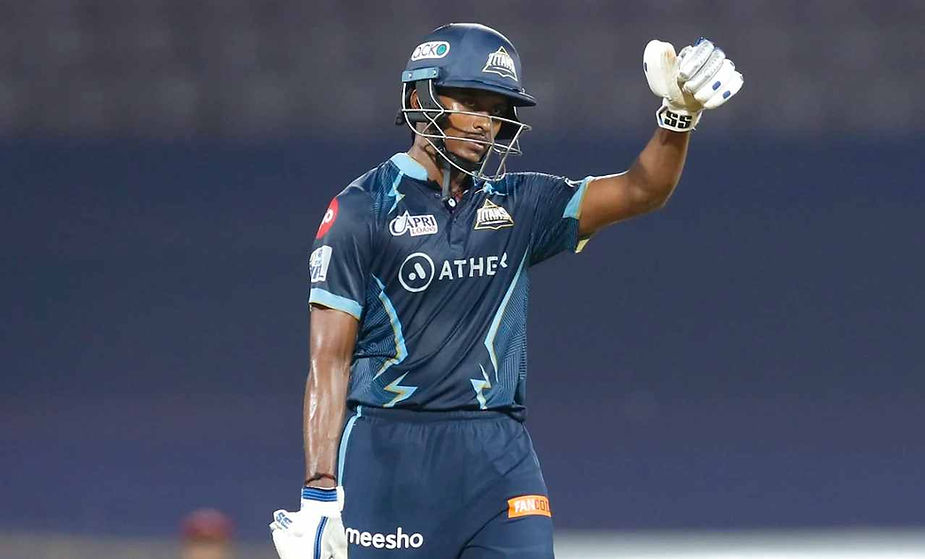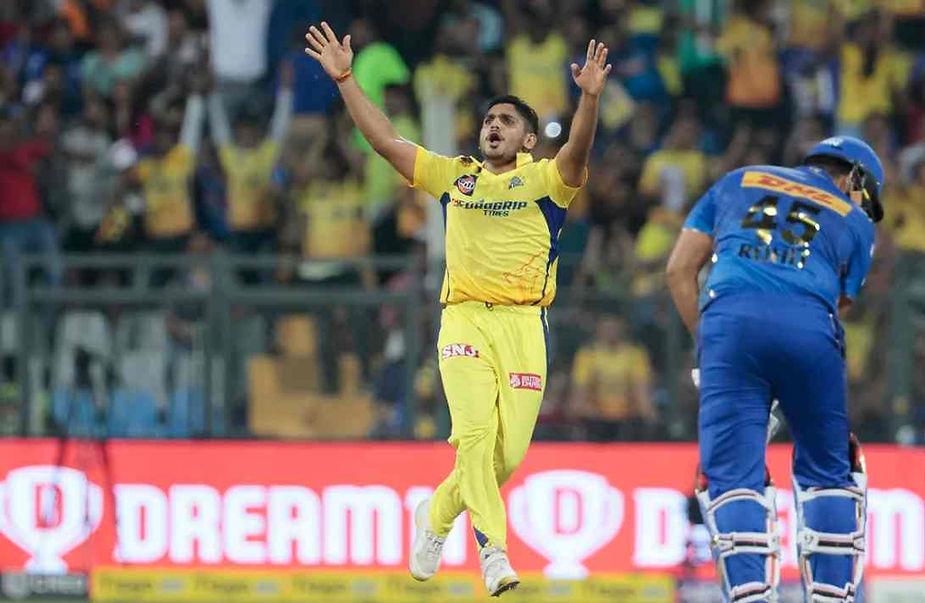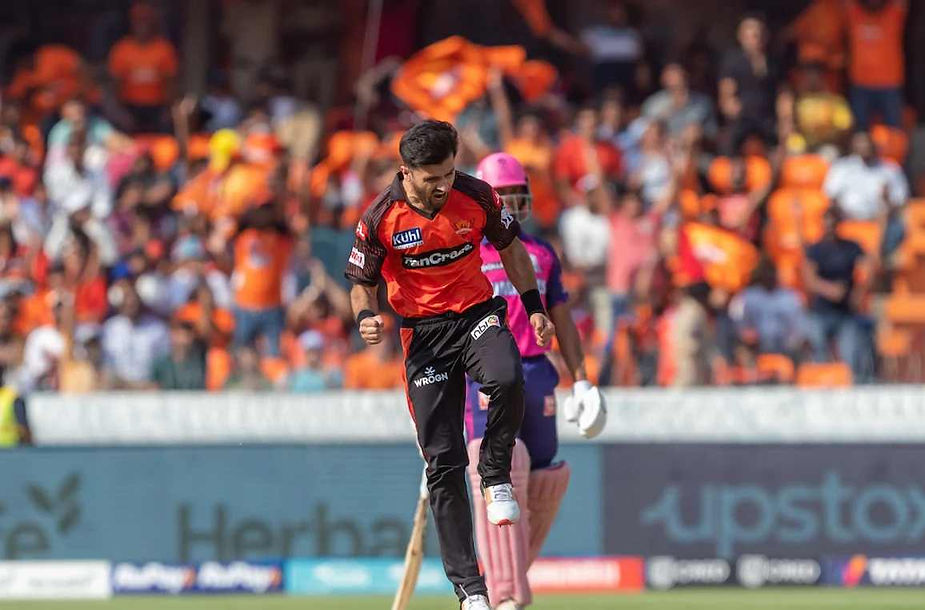IPL 2023: Gujarat Titans have been spot on in application of Impact Player Rule. See how other teams have used Impact Player rule so far in 2023 edition of IPL.

The impact player rule has arguably been the most innovative rule in IPL 2023. The game changing regulation was first put to test in Syed Mushtaq Ali Trophy 2022-23 where a player could be brought in after 14 overs. The: BCCI introduced the Impact Player rule, in an attempt to add a new tactical, strategic dimension to the game.
Teams will now be allowed to nominate five substitutes right after the toss, one of which can be selected as an impact player. That player can perform his regular duties and is permitted to bat and bowl. Substitutions can be made at any point during the innings or even before the commencement of the game depending on the prevailing pitch conditions and developing game situations. For instance, a side getting off to a bad start with the bat can bolster their batting department by adding an extra batter in the form of an Impact Player. Similarly, a side defending a total can look to strengthen their bowling department by roping in an Impact Player should any of their premium bowlers receive a thumping hammering.
It has kept the fans on the edge of their seats and has given teams and the coaching staff plenty to think about. The ongoing IPL edition has seen some Impact Players making positive impact to their side’s performance on the field, and a few of them have not returned the expected goods. As the legendary Indian batter Sunil Gavaskar pointed out, teams need time to acclimatise to this new rule in order to use it more effectively. So, let’s take a look at how the franchises have leveraged the new rule to their advantage and evaluate their immediate impact on their side’s performance.
Gujarat Titans (GT)
Gujarat Titans have commenced their IPL season with two wins on the trot. They made a smart move in their opening game against CSK when they introduced Sai Sudharsan replacing an injured Williamson whilst chasing a competitive target of over 175. The Tamil Nadu batter batted decently scoring at a strike rate of just under 130 and built a useful 53 run partnership for the third wicket that gave his side a reliable platform to push forward for a convincing victory. In the same match, his counterpart from CSK, Tushar Deshpande did not have a promising outing as the young pacer conceded runs aplenty in their 5-wicket loss.
In their second game against Delhi Capitals (DC), the defending champions yet again looked to consolidate their batting line up whilst chasing as they brought in all-rounder Vijay Shankar in place of Josh Little. Shankar made a decent contribution with the bat before succumbing to a well-disguised slower ball by Mitchell Marsh. In both the games, the GT think tank applied themselves very well by wisely selecting batters as their impact players whilst chasing.
Read More: IPL 2023, DC v GT: Sudharsan’s 62* leads Gujarat Titans to second consecutive victory
Punjab Kings (PBKS)
Punjab Kings have started their season with two consecutive wins and are comfortably placed at the number 2 position in the points table. Although, they managed to register a convincing victory against Kolkata Knight Riders (KKR) in their opening game, their decision to send in Rishi Dhawan as an impact player was questioned by many. After posting a reasonably strong total on the board, PBKS roped in Rishi Dhawan in place of Bhanuka Rajapaksa in a bid to solidify their bowling attack whilst defending. Ironically, Dhawan turned out to be the least impactful PBKS bowler as he went for 15 runs in his only over of his spell. With limited homegrown bowling options, Dhawan was an ideal fit considering the volume of IPL experience he has under his belt.
In the second game against RR, the PBKS think tank again made a brain fade move by replacing Prabhsimran Singh with Rishi Dhawan. The decision to bring him on as a backup bowling option turned out to be futile as he did not get a chance to bowl at all. With plenty of bowlers in the lineup, Dhawan was sidelined and was unable to contribute with the ball thus defeating the very purpose of an impact player.
Read More: IPL 2023, RR vs PBKS: Ellis’s 4 vital strikes halt RR; PBKS reach No.2 in points table
Kolkata Knight Riders (KKR)
Kolkata Knight Riders (KKR) lost their opening game in a rain induced match narrowly missing out by 7 runs. They named Venkatesh Iyer in place of Varun Chakravarthy to bolster their middle order department. They made this adjustment during the second innings when they were required to chase a stiff target. The ploy seemed to have worked as Iyer made a decent contribution with the bat and got his side very close to the target before perishing to Arshdeep Singh. Following his departure, KKR were unable to get over the line. In the second game, KKR defied logic by not picking an extra batter in the first innings when they experienced a massive middle order collapse. They were in danger of getting bundled out for a below par total before Shardul Thakur and Rinku Singh came to the crease to bail the Knights out of immediate danger. However, they replaced Venkatesh Iyer and named the 19-year-old Suyansh Sharma as an impact player to bolster their spin bowling department. This was indeed a sensible move considering the pitch had some assistance for the spin bowlers. Their decision to bring him on paid dividends as he achieved figures of 3/30 in his allotted four overs which was enough to skittle RCB out cheaply.
Read More: IPL 2023, KKR vs RCB: Shardul fires with bat; KKR spinners puncture RCB batting order

Rajasthan Royals (RR)
Rajasthan Royals (RR) registered a massive 72-run victory over SRH in their opening game. The top three played their part and propelled RR to a gargantuan score of 203. Whilst the batting department prospered, it was time for the bowlers to step in and seal the deal for the Royals. So, they decided to bring in Navdeep Saini as an impact played replacing Yashashvi Jaiswal. This tactic however did not go to play as Saini went wicketless and conceded 34 in his two overs becoming the most expensive RR bowler. In the end, his lack of contribution did not affect the team’s performance that much as other bowlers had already hit the ground running. Leading to the second fixture, RR did get their strategy right when they decided to replace an off colour Yuzvendra Chahal with Dhruv Jurel to strengthen their batting line up while being against the run of play. With RR requiring runs at over 11 RPO, the call to bring him on during the death overs was considered the right move and was hailed by many experts too. He scored a quick fire 32(15) at a jaw dropping strike rate of 213 and really took the attack to the PBKS bowlers. But much to their despair, RR fell agonisingly short by 5 runs.
Read More: IPL 2023, RR vs DC: Explosive kocks by Jaiswal & Buttler deflates DC
Lucknow Super Giants (LSG)
Lucknow Super Giants (LSG) registered an astounding victory in the first game against Delhi Capitals by 50 runs. Interestingly enough, the tactical substitution came in the first innings of the match when LSG were batting and needed few lusty blows to get them to a gigantic total. As soon as the quick cameo from Ayush Badoni ended, they sent in Krishnappa Gowtham as an impact player who would primarily play a role as a bowler. However, he had one ball to face and used his long levers to perfection depositing a huge six to end the LSG innings. When his chance to bowl arrived, the 34-year-old bowled economically and kept the DC scoring rate under check only conceding 23 in his 4 overs which included 12 dots. In their second game, LSG went down to CSK in a high scoring thriller. Knowing that they faced a daunting challenge of chasing 218, LSG roped in Ayush Badoni as an Impact Player in place of Avesh Khan. With an overall T20 strike rate of just around 133, Badoni may not have been an ideal candidate to be sent in such a position. Upon a closer look, Prerak Mankad had a much-improved strike rate than Badoni, hence sending him or the highly experienced Manan Vohra would have been a desirable choice for such a situation.
Read More: IPL 2023, LSG vs SRH: LSG brush aside SRH by 5 wickets; go top of the table

Chennai Super Kings (CSK)
Chennai Super Kings (CSK) posted a commendable score of 178 in the first game against GT and required a potent bowling attack to contain the defending champions. With that in mind, they decided to bring in Tushar Deshpande as an Impact Player replacing Ambati Rayadu. However, this ploy severely backfired as the inexperienced youngster went for plenty and conceded 51 runs at an embarrassing economy rate of 15.3 RPO handing CSK an embarrassing defeat in the tournament opener. In their second game against LSG, CSK had a much bigger target to defend. But their tactic remained unchanged as they decided to persist with Tushar Deshpande yet again. This time however, the 27-year-old bowled with some character and was able to complete his full quota of overs picking two prize wickets while still being on the higher side.
Read More: IPL 2023, CSK v LSG: CSK secure victory with all-round effort in Chennai
Royal Challengers Bangalore (RCB)
Royal Challengers Bangalore (RCB) put up a clinical performance with the bat and ball in their opening game against MI. With both the batting and bowling departments firmly secured, RCB didn’t feel the need to bring in an Impact Player as they were well and truly in the game right from the onset. However, in their second game against KKR, RCB found their back against the wall and were faced with a stiff task of chasing a colossal score on a track that had some bite for the spinners. After losing almost half their side inside the first 10 overs, RCB were scrambling for a quick solution and sent in Anuj Rawat as an Impact Player. But to add to their misery, Rawat failed to offer any sort of resistance as he perished for 1 resulting in a very humiliating defeat for RCB. With an uphill target to chase, RCB needed someone in the form of Manoj Bhandage who would have been a more viable option since he had a more robust strike rate of 154 as opposed to Rawat who had a dismal looking strike rate of under 115.
Read More: IPL 2023, RCB v MI: Dynamic duo of Kohli and du Plessis dominate as RCB beat Mumbai
Delhi Capitals (DC)
If there is one team that desperately needs a game changing Impact Player then that is Delhi Capitals. Capitals are yet to register their maiden win in the 2023 IPL edition. In their pursuit of 194 against LSG, DC decided to call upon the services of Aman Hakim Khan in place of Khaleel Ahmed. Hakim Khan has a formidable T20 record in the domestic circuit and there were big expectations from high to deliver the goods for his side. The strategy to bring him in was spot on, however the 26-year-old failed to get a move on and was dismissed by Avesh Khan for just 4 runs as DC fell way short of their required target. In their second game against GT, DC needed to consolidate their bowling attack to defend a reasonably small score against an explosive batting attack. Khaleel Ahmed was brought in as an Impact Player in place of Sarfaraz Khan. His inclusion didn’t seem to have any significant impact as he bowled with a lack of penetration and went for almost 10 an over with just one scalp to his name. Up against the defending champions, the onus was on him to lead from the front and provide early breakthroughs which he failed to deliver.
Read More: IPL 2023, DC v GT: Sudharsan’s 62* leads Gujarat Titans to second consecutive victory
Mumbai Indians (MI)
Mumbai Indians had a day to forget in their opener as they were thrashed left and right against RCB. After ending their first innings with a below par score of 171, MI knew that the only way to win the game would be through wickets. With only three overseas players in their playing XI, MI decided to rope in Jason Behrendorff as an impact player who faltered badly and went for plenty giving away 37 runs in his 3 overs whilst going wicketless. Although he was high on experience compared to his counterparts, there were other home-grown options like Raghav Goyal and Kumar Kartikeya which could have been considered by the MI skipper.
With just one game under their belt, it is way too early to make any assessments on how well they have utilised their impact player.
Read More: Mumbai Indians headed for another disastrous IPL?

Sunrisers Hyderabad (SRH)
After conceding a humongous first innings total of 203 against RR, Sunrisers Hyderabad needed a reliable Impact Player in the form of a pinch hitter who could turn things around for the Orange Army. Fazalhaq Farooqi was replaced and Abdul Samad was brought in as an impact player. Samad has a very good T20 record with close to 1000 runs and a phenomenal batting strike rate of 145. However, his innings at a run a ball hurt SRH’s momentum in the second innings which eventually knocked them out of their opening match. Following Farooqi’s replacement, an overseas spot was up for grabs. But with Aiden Markram, Heinrich Klaasen and Marco Jansen unavailable for selection due to national duties, SRH had to deal with the lack of firepower and had to eventually go with a less established Indian batter to strengthen their highly vulnerable batting department.
With just one game under their belt, SRH have a long way to go and as they further advance into the tournament, their strategy to deploy an effective impact player will also evolve.
Read More: IPL 2023, SRH v RR: Rajasthan Royals seal emphatic win against Sunrisers Hyderabad

